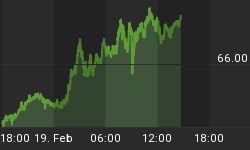The faster oil services firms and oil exploration companies adopt digitalization, the more data they generate with every well they drill and every digital map of oil resources they create—but that data is now the subject of hot debate as the oil industry tries to figure out who owns that data.
In the era of the Internet of Things (IoT) and the Internet of Everything (IoE), data about oil resources and oil wells is so important that companies across the oil industry’s chain are now seeking to explicitly state in contracts who owns that data—the oil service firms or their exploration customers.
On the one hand, oilfield service companies have realized how valuable the data they get can be, while on the other hand, the E&P companies say they own everything coming out of their wells, including the data. This is setting the stage for a battle over the other most valuable resource in the oil industry, Bloomberg’s David Wethe writes.
Data and digitalization have transformed many industries, including oil and gas, and they will continue to do so, creating billions of U.S. dollars from the businesses of big data analytics and digital oil fields.
As early as in 2015, Cisco Consulting Services and Oxford Economics said in research that the oil and gas industry adopting IoE has the potential to increase global GDP by up to 0.8 percent—or US$816 billion—by 2025. Cisco Consulting Services estimated that the adoption cost of the IoE would be about US$180 billion for the industry, but over a 10-year period, the multiplier impact would be about three to four times when it’s translated to the global economy.
Related: What Should Gold Investors Expect From The New Fed Chair?
Another key insight from the research was that oil and gas leaders named “data analytics for faster, better decision-making” as their number-one driver to invest in IoE.
More recently, the “Accenture and Microsoft 2017 Upstream Oil and Gas Digital Trends Survey” showed that in 3-5 years, over 70 percent of more than 300 leading upstream companies plan “more” or “significantly more” investment, transitioning to areas such as high-performance computing, wearables, artificial intelligence (AI), robotics, blockchain, and mixed reality.
So, the battle over who owns the exponentially rising amount of data has made companies carefully word their service contracts to explicitly state who owns what, including data.
“It was always pretty straightforward, and there was never really a lot of conversation about it,” Garrett Jackson, vice president of drilling and completions at Devon Energy, told Bloomberg in an interview.
“Now the clauses are getting to be a page, page and a half long, trying to parse out what parts are the contractor, what parts are the operator, when there’s overlap, how that’s divided up,” Jackson said.
Oilfield service companies could sell ‘digital libraries’ with the data they have, thus boosting their revenues.
“It’s like Netflix for oil and gas,” John Gibson, an advisor at Tudor, Pickering, Holt & Co who previously ran the oil-services business for Halliburton, told Bloomberg. “Imagine that all data is like a movie that many different people want to watch, but they want to watch it at different times.” Related: Are Alt-Coins On The Verge Of A Break Out?
But E&P firms increasingly believe that it’s their data to analyze and that data is one of their most valuable resources to help them make faster decisions and beat competitors.
“Data is king and one of our most valuable resources,” Sandeep Bhakhri, chief information and technology officer at EOG Resources, said at a conference call last year. “You have to own the data. You cannot outsource its collection, analysis or delivery,” said Bhakhri, whose employer EOG has been dubbed “the Apple of oil” by analysts because of its use of in-house technology and data analytics. EOG has dozens of apps it has developed to help engineers track well data, and it has been analyzing data on thousands of horizontal wells across the U.S. shale plays with what it calls “black boxes” that it has been deploying on rigs.
In today’s digital world in which data in the oil industry is nearly as valuable as oil itself, exploration companies are boosting investment in analytics and protecting proprietary data, while service companies have realized how valuable data is to their customers and are selling data, insights, and analytics tools to them.
By Tsvetana Paraskova for Oilprice.com
More Top Reads From Safehaven.com:

















